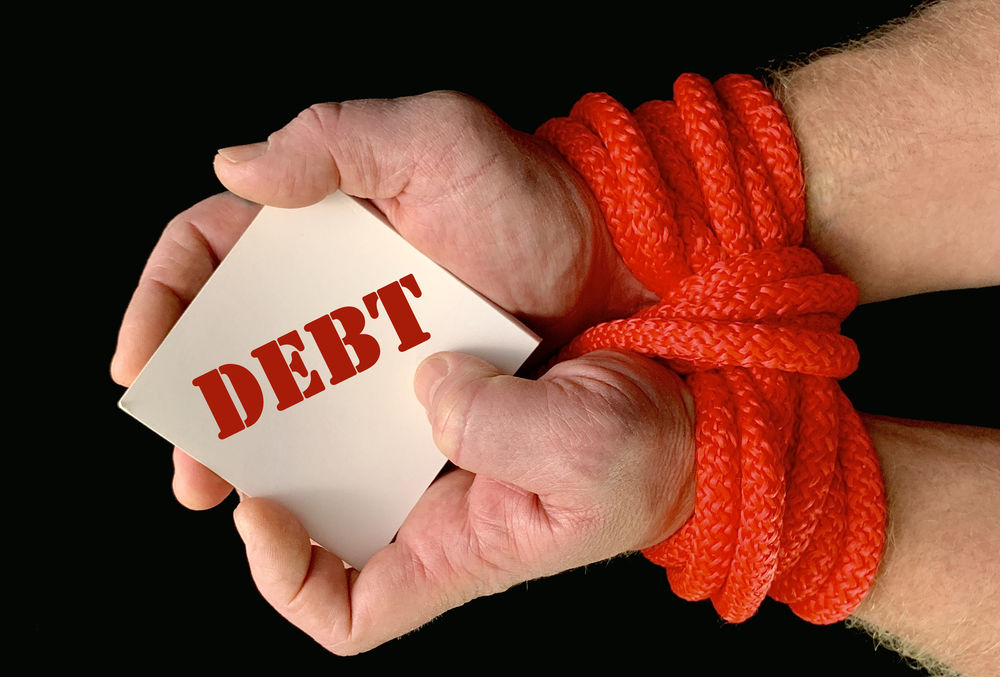It’s tempting to believe that filing for bankruptcy is like having a magical wizard wave his wand to make all of your problems disappear. Unfortunately, this isn’t exactly the case. You need to know exactly which debts can be discharged and which debts can’t as you begin the process.
Bankruptcy isn’t rare in the Hoosier state; Indiana has the 7th highest percentage of bankruptcies in the United States, based on population: 22,748 in 2019, or 3.38 per every 1,000 people.
If you file for Chapter 13 Bankruptcy in Indiana, you will still be obliged to pay something toward your debts; it’s just that you will be given a payment plan that reduces your unsecured debts based upon your ability to pay, that puts you on a manageable schedule, and that holds your creditors at bay while you work on making achievable payments.
Taking that into account, we’ll focus on Chapter 7 Bankruptcy.
Some debts are definitely dischargeable:
- Medical bills: This is a lifesaver because ⅔ of the people who file for bankruptcy cite medical issues as the main reason. That’s 530,000 families per year in the United States.
- Credit card debts: Although credit card debt dropped in 2020 (possibly because of Covid and the fact that people were staying at home), the average household credit card debt is $5,315. Although credit card debts and late fees can be discharged during bankruptcy, that doesn’t mean that you can rack up new debts after you file.
- If you use a credit card to buy more than $725.00 of luxury goods (that is anything not actually considered to be a necessity) within 90 days of filing for bankruptcy or if you used the credit card to pay for non-dischargeable debts (like child support), this debt may not be discharged if the creditor files an adversary proceeding to have the court declare the debt non-dischargeable.
- Cash advances (on your credit card) that total more than $1,000.00 within 70 days of filing for bankruptcy.
- Overdue utility bills: These will be discharged and furthermore, utility companies will not be able to shut off your service after you have filed for bankruptcy. Make sure that you list this debt with your other obligations when you file. You will have to prove that you can pay future bills in order to keep the utilities; there are complicated rules attached to this, so an experienced bankruptcy attorney will be a huge asset.
- Civil court judgments (not counting anything that was based on fraud).
- Rent that is past due: This doesn’t mean that you can’t be evicted. It simply means that any rent that is owed from before you filed bankruptcy will be discharged.
- Personal loans: Although your family or friends who helped you out will not be thrilled to hear this, these are discharged.
- “Payday” type loans
- Collection agency bills
- Dishonored checks (unless they were based on fraud)
Some debts are definitely not dischargeable:
- Child support: This is considered to be a priority debt and will not be discharged. The positive here is that if your other debts are discharged, you may be likely to have enough money to pay this required debt.
- Alimony payments: if the domestic support obligation (DSO) owed to a former spouse is for maintenance, it will not be discharged.
- Debts arising from willful and reckless acts, embezzlement, fraud, or larceny
- HOA fees: if you surrender your house, your homeowners’ association fees will be discharged up until the time you filed for bankruptcy. If you keep your house, these debts will not be discharged, and you will have to pay them.
- Most back taxes: Tax debt assessed within 240 days before you file your bankruptcy case is not discharged. If the tax debt is at least three years old, it may qualify for a discharge. This includes both back taxes owed to the Internal Revenue Service (IRS) and to the Indiana Department of Revenue. But the debts must be at least three years old at the point you file for bankruptcy.
- Court fines, including restitution ordered in a criminal matter
- Any debts you did not list when you filed for bankruptcy unless the creditor learns of your bankruptcy case. (These are called unscheduled debts.)
- Student loans. There are some exceptions to this. To discharge a loan taken for an educational purpose, you’ll need to file a certain kind of lawsuit known as an adversary proceeding or adversary suit. This is a way of proving that it is an undue hardship for you to continue paying on your loan and it will be impossible to pay it back in the future. This is a complex lawsuit that can be expensive, so seek legal guidance from a bankruptcy attorney before taking this path.
Filing for bankruptcy can be a chance for an almost clean slate, but not a perfectly clean slate. Consult an experienced bankruptcy attorney to make sure that it is the right choice for you, and if so, to help you navigate the myriad Indiana bankruptcy laws.
At Sawin & Shea, we understand that hiring an attorney to help you file bankruptcy is scary. We are committed to providing compassionate and non-judgmental representation to all of our clients. Our attorneys have helped thousands of people just like you get the fresh start they deserve. We are here to help.



